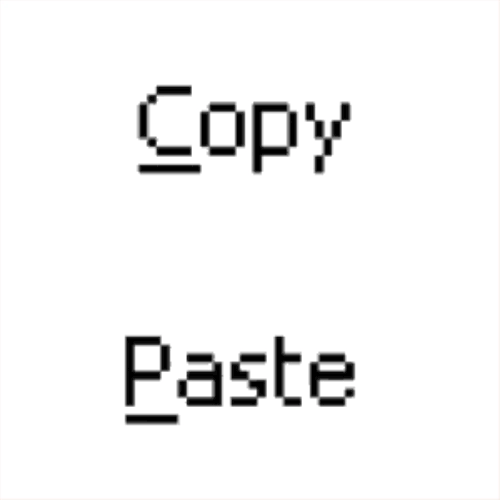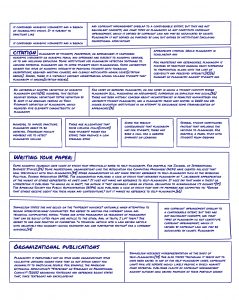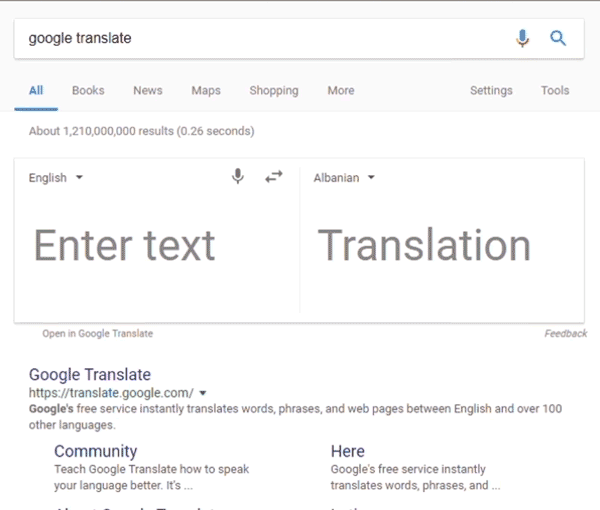How plagiarism became a modus operandi in Kosovo’s higher education.
During my short-lived career as an academic writing instructor the one thing I tried to insist on was elementary writing and referencing standards. On the first day of class, I put definitions of plagiarism and academic dishonesty up on the board. Unsurprised, my students, a medley of private and public undergraduates who were taking extra-curricular classes in preparation for applying to graduate schools, said they were familiar with the concept.
Despite this, in their first two-page essays, the students used copy-pasted sentences from random websites, cited articles without any authors, and either failed to cite properly, or simply did not bother.
Since I refused to grade such essays, most of the class fell in line by the second or third assignment, providing often boring, but at least honest work.
One of the brightest students, however, kept sending in one plagiarized assignment after another, even after I had confronted him and told him I use plagiarism tracking software. He did not care, partly because my class did not affect his ‘real grades,’ and partly because, as he told me without even blinking his electric blue eyes, this is how it was done.
This is how it is done.
Plagiarism is neither a novel phenomenon nor is it limited to Kosovo. Universities around the world are struggling to fight student plagiarism and copying, exacerbated by ‘essay mills,’ where students can pay for complete assignments, including theses and dissertations. In countries like the UK, it has been called an epidemic. In Kosovo, too, a recent investigation by Preportr reveals that ready-made and custom-made theses can be bought for as cheap as 200 to 250 euros.
But unlike in most European countries, Kosovo universities are also facing a dire problem – the academic dishonesty of their staff. While the German Education Minister Annette Schavan resigned after it was discovered she had plagiarized her PhD dissertation, and Romanian Prime Minister Victor Ponta had to relinquish his doctor title due to similar charges, Kosovo academics plough on. Despite being caught publishing in fraudulent journals, plagiarizing doctoral dissertations, and advancing without proper credentials and merit, the staff of the University of Prishtina have faced almost no consequences.

Getting ahead
“When someone tells me ‘I started a PhD,’ I immediately think that they have failed in life,” quipped a bespectacled Rinor Qehaja. Entirely disillusioned with the level of academia in Kosovo (he even calls the entire academia “a crime”), the executive director of EdGuard is the lead author of a forthcoming research paper about the widespread presence of plagiarism amongst University of Prishtina’s staff and graduate students.
Qehaja, a doctoral candidate at the University of Cambridge, was shocked to find out that in about 40 per cent of the academic work of 70 randomly selected professors there are clear cases of academic dishonesty.
Qehaja said that plagiarism at the university is often blatant.
“We noticed that plagiarism is often obvious and there is a lack of awareness, people do not know they are plagiarizing, especially students. And this is why they do not see it as tragic.”
Professors, on the other hand, have at times knowingly translated texts into Albanian claiming them as their own, and have even stolen from students.
People do not know they are plagiarizing, especially students. And this is why they do not see it as tragic.
The University’s Code of Ethics does not employ the word ‘plagiarism,’ but clearly states that violating “intellectual honesty” is unacceptable behavior. The Statute of the University of Prishtina allows for the Senate to strip staff from academic titles because of falsification, fraud, plagiarism, or a violation of copyright. However, to date, there is no record to show that any such disciplinary measure has ever been taken during the University’s 45 years of existence.
Current Rector Marjan Dema, in a written response, said that he did not inherit any information about plagiarism cases, but said he remembered a couple from 2007 (he did not provide information as to who these people were, or what happened to them). However, to Dema’s knowledge, no single professor has ever been fired for academic dishonesty.
Since the early 2000s, the university has been under fire for being politicized, corrupt, and in dire need of reform, but the dam only broke in 2014, when upon discovering that then-Rector Ibrahim Gashi had published a paper in a dubious journal in India, students protested for days until he resigned.
For a short period it seemed like the much needed reforms were possible. Gashi’s successor Ramadan Zejnullahu tried to halt unmeritocratic advancements and battle corruption, but lacking support from the University Senate and the Steering Committee, he left his post at the end of the first mandate, having achieved little lasting change.
Dema, who also allegedly published a paper in a dubious journal, has also struggled with problematic advancements since taking the job.
Last year, a BIRN correspondent reported serious allegations and evidence that the head of the history department, Selim Bezeraj, had plagiarized parts of his doctoral dissertation from an MA thesis written by an Austrian student. A week later, Bezeraj was promoted to an Assistant Professor.
Qehaja sees plagiarism as a tool for academic advancement to be part of a wider, systemic issue: he sees most research done at the university to be self-serving.
“There is no reason for these works to exist, they are not a contribution to science. The only reason these [dissertations and papers] were written was for professional interest, so they could advance in university,” explained Qehaja.
The Statute of the University makes research – doctoral dissertations and publications in academic journals – a precondition for academic advancement. To advance to the title of assistant professor, an academic must have at least one paper published in an international journal; to become an associate professor, they must have at least three; and to become a full tenured professor, they must have at least five.
If the number of necessary publications seems minimal, for a university which spends 0.1 per cent of its budget on research, it can still be an incentive for people to write papers for the sake of publishing, rather than for research.
“If professors had an ultimate goal of contributing to something greater, or if students wanted to gather real knowledge, then maybe the approach would change. The professor and the student both have the same goal,” said Qehaja.
“It boils down to their narrow professional interest of getting ahead, nothing more.”

A drawn-out problem
The problem of plagiarism is rooted in the University of Prishtina’s inception, explained Shkelzen Maliqi, philosopher and social critic, as we sat in the garden of his home in Prishtina. After massive protests in 1968 demanding language rights for Albanians living in the then-Serbian province of Kosovo, the first faculties providing classes in Albanian were opened in Prishtina. But, lacking a qualified local staff, the faculties functioned as a branch of University of Belgrade until 1969, when the University of Prishtina was officially established.
“The reason why we’re in today’s situation is something that I would call a shortcut to development,” Maliqi explained. “The university was created with good political motives, Albanians needed to have their own university, but they made a shortcut. Kosovo did not have qualified faculty… They rushed to establish the university as quickly as possible.”
The political leaders at the time seized the opportunity, probably afraid that the political mood might change, analyzed Maliqi. The university had programs both in Albanian and Serbian and they were both “poor” according to Maliqi.
Rote learning coupled with an urgency to prepare local academic staff as soon as possible left an indelible mark on the university. However, Yugoslavia had reputable universities in other capitals, and the majority of Prishtina’s eventual staff studied at them.
The reason why we’re in today’s situation is something that I would call a shortcut to development.
According to Dukagjin Pupovci, an education expert and former professor at the University of Prishtina, there was a quality check even back then – all doctoral commissions included a professor from one of the external universities. “Not everyone could get a title just like that,” he said.
Even Maliqi admitted that Yugoslav universities had standards of academic integrity, but added that whether they were enforced or not was a different matter.
According to Maliqi, plagiarism, which was also penalized back then, was however very much present. He witnessed this first hand in the department of Albanian studies in Belgrade, where he worked for four years. “People would take three books, quote some parts and make a paper, just like that.”
In the mid ‘80s, after years of studying in Belgrade, Maliqi returned to Prishtina and wanted to start a philosophy journal with his peers. The then-Dean of the Philosophy Faculty obstructed the young philosophers’ project. As a response, Maliqi and his friends combed through his books and discovered a trove of ‘borrowed’ gibberish. They took their findings public, becoming the firsts to expose a “plagiarism scandal,” in 1985.
The plagiarism was not half the story for Maliqi and his colleagues. What they discovered was a methodology, now adorably quaint. “He would take three to four dogmatic books, assign different chapters to students, and tell them to write school papers by lifting a sentence here, a sentence there.”
The students would xerox book pages, cut the sentences as the professor had ordered, and then glue sentences from different books together into a page, xerox again and type it all up. These ‘papers’ were later turned into book chapters.
“He would create such a hodgepodge – no sentence would have a logical connection to the next!” Maliqi exclaimed, still amazed at the shamelessness of it all. Although proof of his plagiarism was published in the biweekly Fjala, the dean was not fired. Instead, other professors attempted to bribe Maliqi and his friends by offering them teaching positions and classes. “I did not have those ambitions. Perhaps it would have been better if I did, now at least I’d have a pension,” he joked.
In the late 1980s, as the political situation worsened in Yugoslavia, the Serbian press used Maliqi’s criticism of Kosovo’s academia, and he was branded as “a traitor.”
“People told me that with this kind of talk we’re endangering the university,” he said.
Whether or not Maliqi’s criticisms had any impact at all, the anxieties of Kosovo’s academics were based on intuition that proved to be true: the university was in danger.
After Kosovo’s autonomy as a province was revoked, Albanians were fired en masse, while educators who refused to teach the new curriculum were also put out on the street. The University of Prishtina, once the hotbed for social movements and political change, lost its Albanian staff and the majority of its student body in 1991. For the next eight years, professors and students improvised classrooms in private houses, basements, and empty classrooms in suburban elementary schools. Instead of a semester of 13 or 14 weeks, courses lasted ten weeks at most, explained Pupovci.
Many of the students who graduated at the time teach at the university today.
“I do not want to pardon anyone, but the Kosovo education system suffered a great trauma during the ‘90s, when the system was simply entirely closed off,” explained Vjollca Krasniqi, a professor at the UP, who graduated in philosophy and sociology in 1998. “This has left great marks and will continue to do so in the future of academic production and knowledge production in Kosovo.”
Pupovci, who finished his doctoral studies at the University of Prishtina in the ‘90s, agrees that the improvised parallel system during the Milosevic regime is “a deep wound in the Kosovar education system in Albanian.” The students and professors were deprived of “everything deemed normal,” he said.
Nevertheless, Pupovci emphasized, between 1991 and 1999, only 45 people received their doctorates.
“Some kind of criteria were upheld,” he said.
Pupovci believes the situation worsened after the Kosovo war ended, with political parties, especially the newly-established Democratic Party of Kosovo, PDK, vying for positions of power within the university.
The political and university elites fed each other: ministers would graduate and collect their MAs and PhD titles while in office, while politically affiliated academics also advanced within the university. Leading political figures: ministers and MPs would both lecture and hold public office, a practice that continues well into the present (a recent study by Preportr found that out of 374 academic staff at the University, 50 held or continue to hold political posts).
Maliqi, however, points out that this was true of the academic elite since the get go: party apparatchiks pursued academic titles even in Yugoslav times.
In 2003, a small group of students – Shkelzen Gashi, Glauk Konjufca and Gezim Krasniqi- started a movement for a “Different University” (Universiteti Tjeterqysh!). They launched a website and began publishing evidence of plagiarism, and tried to open a debate about staff incompetence, corruption and sexual abuse at the university.
The movement however was short-lived and fizzled out in 2005, when the three of them joined Kosovo Action Network, KAN, which was later to become Vetevendosje (only Konjufca is a member of the party today).
“As far as I know, no single person was sanctioned and it couldn’t have happened anyway when people in charge of the University of Prishtina were politicized and also accused of plagiarism themselves,” said Gezim Krasniqi, one of the organizers and a fellow at the University of Edinburgh, referring to allegations made against the then-Rector Arsim Bajrami, who was also a PDK MP at the time.
“Although we failed to become an actual movement and create a network, we managed to at least start a debate,” Krasniqi said.

An installed culture?
“Corruption has become a part of our thinking, a part of the way we act,” a worried Venera Demukaj told me over Skype, while we discussed a paper she and her colleague Edona Maloku wrote about corruption in higher education in Kosovo. In the qualitative analysis the two academics presented in 2013, they found that students had internalized corrupt practices, from influencing to cheating, and considered them a matter of resourcefulness.
Demukaj, a professor of economics at the RIT in Kosovo, a private American college in Prishtina, who had previously worked as a teaching assistant at the University of Prishtina, admitted to me that the main reason she left was because every time exam period started she would get endless calls from people trying to influence her grading.
“I realized that kind of pressure was too much to handle,” she said, listing how it was entirely normal for students to come negotiate for grades, or if they could, cheat. “If corruption is the rule, plagiarism goes along with it.”
At the University of Prishtina the majority of programs include obligatory academic writing classes where students learn about academic dishonesty and proper referencing.
But, students nevertheless admit that plagiarism is widespread.
“I believe all students do it,” said Emin, a student a the University of Prishtina who did not want to disclose his full name. He said bootlegged readers, which can be bought in the many photocopy stores strewn around the university campus, are also to blame. These readers, which do not have proper references, usually end up as primary sources for student papers.
“I’ve read essays which include fragments written by authors without their name referenced even once. And maybe, I also did that myself,” he added conspiratorially.
A fellow student, Liridona Sijarina, 22, agreed.
“Readers don’t have any references… Some professors also assign what they call ‘books’ that are published by private universities, but that are basically brochures,” Sijarina said. “Sometimes they even turn their powerpoint slides into ‘readers.’”
If corruption is the rule, plagiarism goes along with it.
With the ratio of professors to students being 50:1 throughout the university, and drastically higher at the faculties of law and economics, which are the biggest faculties, student papers are not read carefully, if at all.
“The problem comes from the professors,” said an impatient Arton Demhasaj, director of Cohu and editor of Preportr. According to a recent investigation they published, some professors at the economic and philosophy faculties mentored as many as 136 and 143 Bachelor theses, respectively, in a two-year period. “This raises the question of what sort of quality you as a professor can offer, what your physical limitations are. That’s how we end up with students plagiarizing because all students know the professor has no time to read.”

A stark contrast to overcrowded and understaffed University of Prishtina, RIT in Kosovo has a small student body of 450 to 650 students and a student to professor ratio of 14:1. Yet there too plagiarism amongst students is a problem. The teaching staff use Turnitin, a plagiarism-detection software for all essays, explained Daniel Cosentino, Vice President for Academic Affairs, but there are students who still attempt to get past it.
“Plagiarism is found throughout – not only with the weak students,” explained Cosentino. He said that students take materials from the web or even copy long Wikipedia entries, share materials, and cheat in tests.
At RIT in Kosovo, teachers either fail students for the assignment they plagiarized or for the entire course. A repeated offense results in suspension, but not all professors report misconducts, because as Cosentino puts it, “they are not there to serve as police.”
He added that even with access to powerful technologies and a smaller class size, it is still difficult and costly to monitor plagiarism; he cannot imagine how the University of Prishtina, with its large class size, could drastically change the situation.
When Demukaj worked for the University of Prishtina between 2005-2007, checking for plagiarism in student work was not even a priority.
“The justification always was that we had too many students,” she said. “I cannot even imagine that something has improved by now, seeing that the numbers of students has only increased.”

System reboot
One way to solve plagiarism amongst students, experts and university managers agreed, is to introduce plagiarism detection software.
“Certain objectives in the University of Prishtina Strategic Plan for 2017-2019 address this issue… It would be useful to create a software, but with the University’s current budget it is impossible to do so,” explained rector Dema via email. “I personally have demanded that all Masters and PhD theses be made public.”
The rector also stated that the university was working on publishing all bachelor theses on the university’s website “to prevent” the phenomenon.
You cannot have a professor who has plagiarized being promoted in the university, moving up in politics, and punish the student who plagiarizes.
Independent experts also urge the university to create a database with student theses, because while software like Turnitin can be customized for all languages, without a database of research in Albanian, the program would not be able to verify originality.
“Once students graduate they would publish their work through this software, so that every time someone submits a thesis, plagiarism could be detected,” explained Qehaja. This might prevent students from ‘sharing’ and copying each other’s work, but it does not however address the problem of plagiarizers who do so by translating texts from other languages.
“It’s mostly students that copy from Albanian texts,” argued Pupovci, adding that a database could be created but it would not stop others, including academic staff, from plagiarizing from texts in German, or in English, as they’ve blatantly done in the past.
Regardless of how hopeful everyone is about a software to end the systemic dishonesty, Pupovci is also worried about the people who will do the supervision.
“Even such a system would require a person that will supervise the submission of topics,” he said, implying that even in such an instance there could be irregularities if thesis supervisors would not report plagiarism upon discovery.
Extra curricular classes on academic writing could also help, suggested Krasniqi, whose own students in social work attended thesis writing classes provided by a Transformational Leadership Program volunteer. Most of the students who attended the weeks-long training showed a great improvement in academic writing.
“It shows that most young people would like to provide good results, but they simply don’t know how. They don’t know how because they never learned it, or rather they never practiced it,” said Krasniqi.
At the same time, disciplining plagiarism cases is also difficult because the University lacks the necessary mechanisms to do so, explained rector Dema.
“We are working on compiling a Code of Ethics for students, which I believe will decrease plagiarism amongst students,” he said.
But Pupovci argued that it would be unfair to penalize and discipline students if professors are also guilty of plagiarism. The university approved a Code of Ethics for its staff in 2012. It also had previously established an Ethics Committee in 2013, but without a work regulation until May 2017, it was technically defunct.
“You cannot have a professor who has plagiarized being promoted in the university, moving up in politics, and punish the student who plagiarizes by suspending him temporarily or permanently,” said Pupovci. “If you want to take measures, if you want to declare war to plagiarism, then you have to do it against everyone,” he concluded.
Ardit Kika contributed to this story with reporting.
Illustrations and gifs by Jeta Dobranja/Trembelat.





